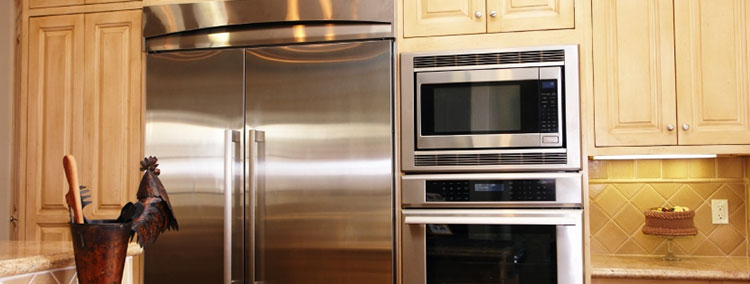The refrigerator is meant to keep the food cold and fresh, and this task is accomplished with the help of fans, an evaporator, a condenser, thermostats, and timers. While this is the case, the unit shouldn’t consume too much electricity that you spend more than you should.
If you have noticed that your fridge is consuming a lot of energy, you might be wondering why this is the case, right? According to refrigerator repair professionals, this can be brought about by several factors. Here are these factors and what you can do to solve them and prevent a similar issue from resulting in the future:
You have faulty gaskets
The gaskets between the door and housing wear out over time, and the adhesive holding them in place sometimes wears out too. The gasket rubber also sometimes loses its elasticity.
As the door gaskets fail, the fridge loses cool air, and the refrigerator has to work harder to maintain cool air inside. As you can guess, this means the appliance consumes more electricity than it should.
To prevent the appliance from doing this, make it a habit to inspect the gaskets as you are doing the cleaning. If you notice them worn out, replace them.
You have a faulty thermostat.
The thermostat is a switch that is usually open. The switch closes when the temperature gets too high, causing the fan to force cooler air into the freezer and fridge.
Sometimes, the thermostat fails and sticks in the closed position. This means that the fan forcing the cold air into the freezer and fridge works continuously, which triggers the refrigerator to draw more energy than usual.
Like with the gaskets, regularly inspect the thermostats (especially if you have an older refrigerator) and fix them if faulty.
You place hot food in the fridge.
You might argue that when you put hot food in the fridge, the food cools down faster. While this might be true, you should know that doing it increases the temperature inside, forcing the refrigerator to work hard to maintain low temperatures.
When you place hot food directly from the stove into the fridge, experts observe that it takes up to 2 hours for the refrigerator to bring the temperatures to normal levels. This means your fridge will be in working mode for two hours, consuming power nonstop for this long.
To save energy, don’t put food directly into the fridge. Let it cool first, then only put it there once it has fully cooled down. This way, you don’t increase the temperature in the fridge hence the unit doesn’t overwork to maintain the low temperatures.
You have compressor problems.
The compressor creates cold air for the fridge and connects to the heat-exchanging pipe coils outside the refrigerator.
An expansion valve at the end of the pipe system allows the refrigerant to exit as fine mist. Another set of heat-exchanging pipes winds through the inner walls of the fridge.
In the event the coils or expansion valve get blocked, the compressor keeps running, which triggers it to use excessive energy, even if there is no cool air reaching the fridge.
To prevent this from happening, regularly inspect your fridge and replace it if the compressor is faulty or too old.
If you have had your fridge for over a decade and it’s constantly bringing problems, you will save money and have peace of mind by buying a new unit.
Your fridge is too close to the wall.
Like any other heat-producing appliance, when you place your fridge too close to the wall, heat gets trapped between the wall and the refrigerator, leading to the appliance overworking and consuming a lot of energy.
Ensure a 30 cm gap between the wall and your appliance to stay on the safe side.
If you have a large house, appliance repair Fairfax professionals recommend that you avoid keeping your fridge in the kitchen, as the room temperatures are high here.
You also should avoid keeping the heater, microwave oven, or any other heat-producing appliance close to your fridge.
